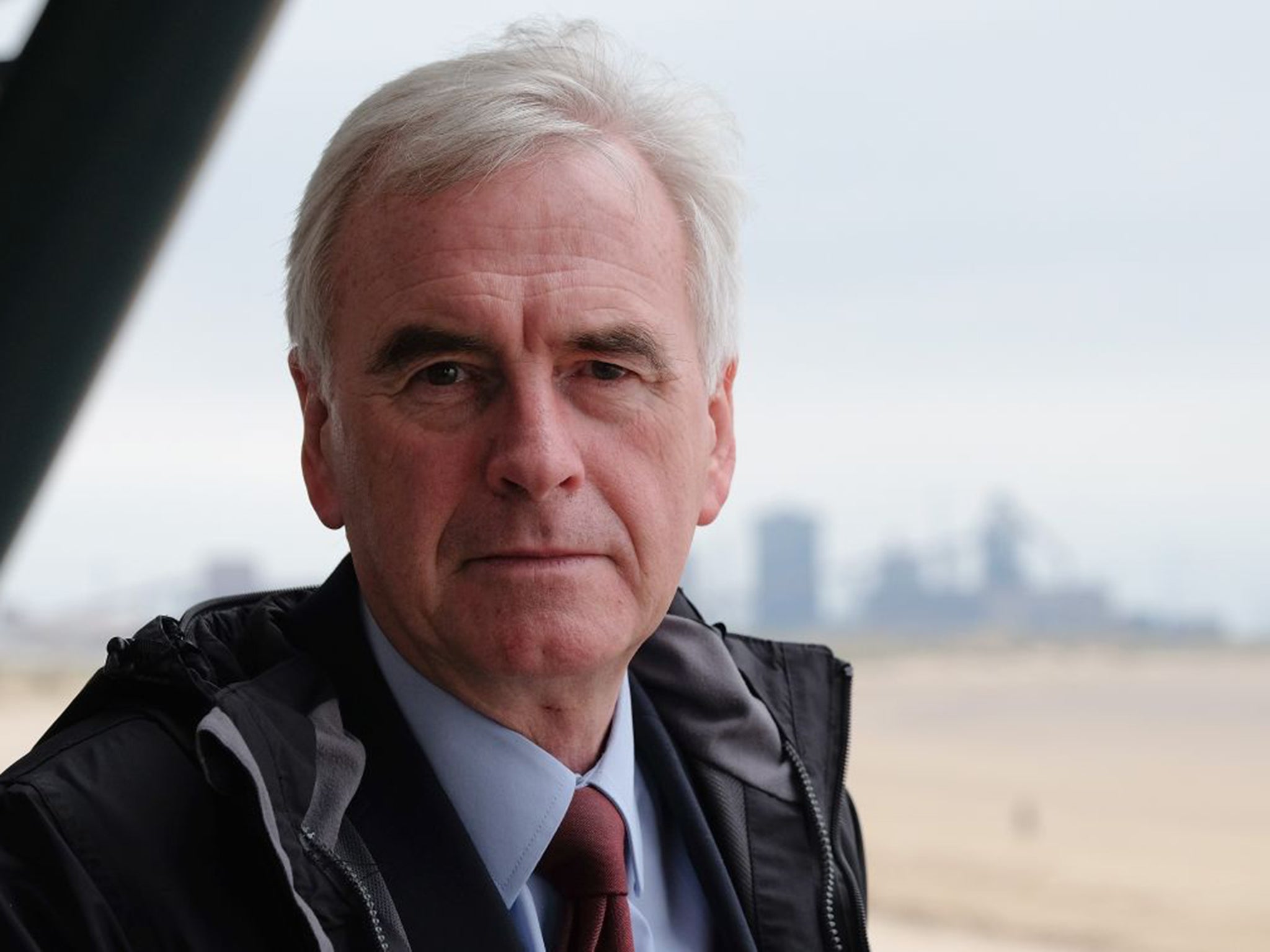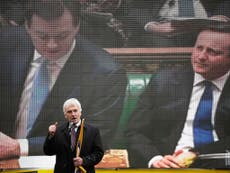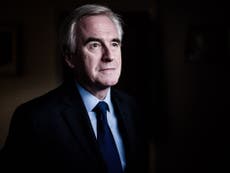John McDonnell: Shadow Chancellor is the new voice of fiscal responsibility
Mr McDonnell shamelessly borrows Ed Balls’s rulebook ahead of Wednesday’s Budget


Here is John McDonnell, who ran Jeremy Corbyn’s leadership campaign on a platform of fighting not just austerity but capitalism, announcing a more fiscally restrictive policy than New Labour.
He is up against a Conservative Chancellor who failed to stick to his own fiscal rules, which were similar to what McDonnell now proposes, and who reacted to that failure by laying down even more restrictive rules.
No one can say that this week’s Budget is going to be boring.
McDonnell’s speech on Friday was a shameless welding of the rhetoric of “doing politics differently” with the policy positions of doing it the same. He said he would “rewrite the economic rules”, and then copied out the rules laid down by his predecessor Ed Balls. Except that he made them slightly stricter – more “austere” if that is the language you prefer.
On the Today programme he said his speech had been endorsed by everyone from the Morning Star through The Independent to business: “We’re now mainstream.” This is true. His speech set out the current conventional thinking, which is that governments ought to balance the books on current spending – that is, on things such as teachers’ salaries – while borrowing limited amounts for capital investment. That is, broadly, the fiscal policy set out by Gordon Brown when he was Chancellor. It was Balls’ position when he was shadow Chancellor, which isn’t very surprising. Not only was Balls Brown’s main economic adviser, but the policy is sensible. Sensible to the point of boring respectability.
I could hardly believe my ears when I heard the catchphrases of Liz Kendall’s leadership campaign from McDonnell’s lips. “There is nothing left-wing about ever-increasing government debts, or borrowing to cover day-to-day expenses,” he said. Did the 59 per cent crush the 4.5 per cent in vain? Did Corbyn’s supporters rant about red Tories and abuse long-standing Labour members who prefer Labour governments for nothing?
So far I have seen only one Corbyn supporter accuse McDonnell online of being a “Blairite” who has “surrendered to the capitalist parasites”, but this may be the start of a trend.
McDonnell may calculate that he can use the language of iron fiscal discipline precisely because he has never been outflanked to his left in his long political career, going back to when as Ken Livingstone’s deputy he tried to oust him as leader of the Greater London Council in 1985, for being too right-wing. But the lesson of that episode must be that relying on the support of people who pride themselves on being more left-wing than everyone else is dangerous, because they are always on the lookout for someone new to betray them.
Hence, possibly, the incoherent rhetoric of the rest of McDonnell’s speech. “The old rules have failed too many,” he said, raging against “extraordinary rises in inequality” that haven’t happened, but which are likely to happen in future if Osborne sticks to his spending plans.
But the old rules have now been adopted by McDonnell. They were the rules that George Osborne followed in the last parliament. What is peculiar – not as peculiar as McDonnell’s conversion to fiscal orthodoxy, but still pretty odd – is that Osborne switched to even more stringent policy last year. His policy now is to balance the books by 2020, but including capital investment in that calculation. That requires him to raise more tax than he needs to pay for what McDonnell calls “day-to-day spending” (teachers’ salaries and so on).
The reasons why Osborne got into this position are obscure. He didn’t need to do it to make life difficult for the Labour Party. Until last week, Corbyn and McDonnell weren’t really engaging in serious debate about fiscal policy. There was no need for the Chancellor to make a fetish of debt reduction. The conventional view espoused by Brown, Balls, Osborne (2010-15), Kendall, and now McDonnell would be that the national debt should be stable or falling as a share of national income. That allows government to borrow prudently (but still large cash amounts, about £30bn a year). To aim to cut debt more sharply at a time when interest rates are so low seems likely to inflict unnecessary damage on the economy.
Not that Osborne needs to worry too much about that on Wednesday. The worst person to make that case against him is someone who opposed every cut in public spending made by this Government. McDonnell is relying on Osborne having balanced the books by 2020: all he has to promise then is to keep them balanced and to “borrow to invest”.
No, all Osborne’s problems are on his own side of the House of Commons in this week’s Budget. Boris Johnson is prowling the benches behind him. As our ComRes poll suggests, Johnson matches David Cameron in the public’s mind as an alternative Prime Minister. Osborne looks like an also-ran, hobbled not solely by the constraints of government, but by those of his own foolishly tight fiscal rules.
Just as McDonnell of all people sets out the policy Osborne really ought to follow, the Chancellor has tied himself to a debt reduction target that would be disastrously unpopular if he met it – and Johnson, the prime minister in waiting, can roam free.




Join our commenting forum
Join thought-provoking conversations, follow other Independent readers and see their replies